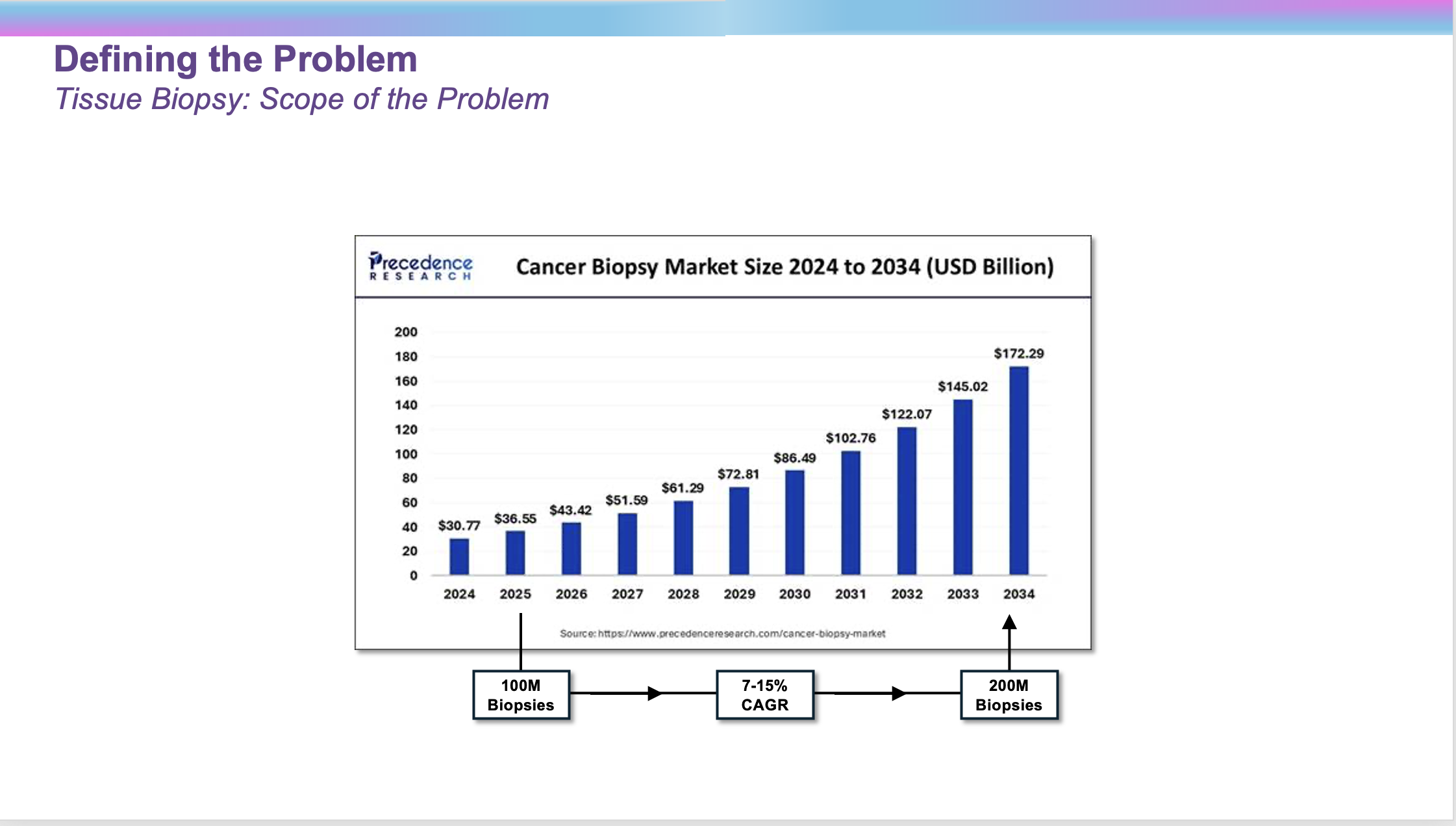
Waiting for biopsy results is heart-wrenching for patients and doctors
Our Mission
Finding Cancer Faster™
Our mission at Caelum Diagnostic Solutions (CDS), Inc., a med-tech startup that aims is accelerate cancer care by delivering immediate diagnostic biopsy results. CDS has developed a sophisticade prototyple called the RPIDx™ a rapid cancer biopsy analysis tool that delivers Biopsy Results in 5 Minutes ™, while the patient is still on the procedure table.
Overview
Cancer is a rapidly growing global problem, with ~20 million new cases diagnosed each year worldwide—projected to exceed 30 million by 2030. Diagnostic biopsies already surpass 100 million annually and continue to rise. Because cancer is time-sensitive, every delay in diagnosis and treatment increases suffering for patients, clinicians, hospitals, and health systems.
Data source: Globocan 2020, Graph production: Global Cancer Observatory, http://gco.iarc.fr - International Agency for Research on Cancer
Data source: Globocan 2020, Graph production: Global Cancer Observatory, http://gco.iarc.fr - International Agency for Research on Cancer
At clinical centers around the world, getting a diagnosis of cancer (biopsy results) generally takes between days and weeks for tens of millions of patients. This results in:
Poor patient outcomes (fatal metastases can occur in less than 4 weeks due to diagnostic delays (BMJ)
Lost revenue from patients seeking treatment elsewhere (up to 1M+ per patient)
Costs incurred from oversampling injury and repeat biopsies
Lower patient throughput resulting from extended procedure time and diagnostic delays
Reduced overall clinical capacity due to repeat procedures limiting new patient access
Reduction in quality of care resulting in patient dissatisfaction and low quality scores for the medical center
Pathologists and mid-level practitioners are already overwhelmed with work; as the number of biopsies needed to meet the rising cancer rates increases, the supply of pathology practitioners cannot meet the demand.
Massive anxiety associated with the biopsy procedure alone, complications from the biopsy and the need for repeat biopsies stemming from non-diagnostic results.
Meet Marta
Marta was my 55-year-old patient—low income, Spanish-speaking, a mother of two who relied on public transportation. After an abnormal mammogram, she underwent a biopsy and was told the results would take days. That wait brought crushing anxiety and uncertainty. She stopped working, struggled with language barriers, and tried to shield her children while her husband helplessly watched her suffer.
As her physician, I could do nothing without pathology. I couldn’t treat, reassure, or plan—only wait. Marta made me realize this suffering extends far beyond one patient. Hospitals, other patients, and overburdened pathology departments all suffer from diagnostic delays.
More than 100 million biopsies are performed globally each year, and waiting days for results is considered “fast.” This is a global problem—and it’s why Caelum Diagnostic Solutions’ RPIDx was created.
Sincerely,
Dr. Rachel Wellner






